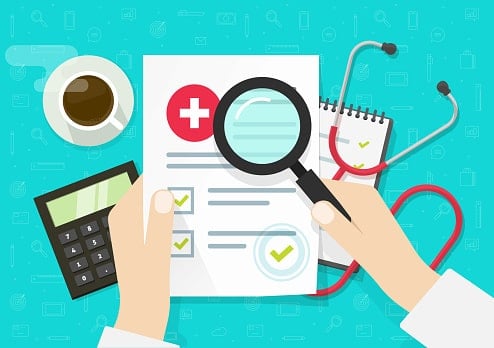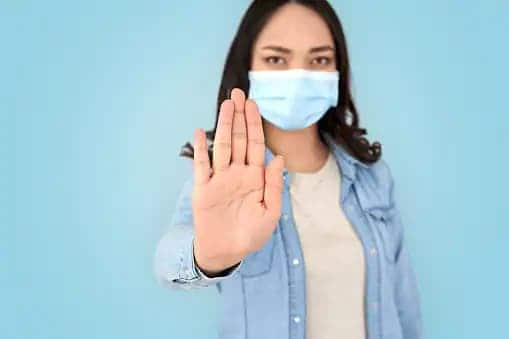Can health insurance deny a claim due to alcohol use?
While not a common practice, instances of being denied coverage due to the presence of any alcohol in your body do happen.
“Insurance claim denials for alcohol use are based on the 1947 National Association of Insurance Commissioners (NAIC) model law, which only says that insurance companies should be allowed to deny claims for patients if they are injured ‘while under the influence’ of alcohol,” says Dr. Larry Gentilello, former professor of surgery at UT Southwestern Medical Center in Dallas.. “So no specific amount is required for insurance companies to deny a claim on this basis.”
If you wind up in the hospital after you have been drinking, you won’t necessarily have your blood or urine tested for alcohol.
Medical providers play a crucial role in this process, as their classification of a claim as alcohol-related can significantly impact the outcome under specific state laws.
“Insurance claim denials on the basis of alcohol use are not very common, mostly because when one insurance claim has been denied, the word spreads quickly throughout the culture of a hospital and the staff stops testing for alcohol,” says Gentilello. “If patients are not being tested, the insurance company usually has no way of knowing whether they have had any alcohol.”
How do health insurance companies know if you've been drinking?
There's no set method of finding out if someone's been drinking. A test isn't required.
"In one case in North Carolina, a teenager crashed his bike into a tree and broke his neck," says Gentilello. "The hospital didn't test for alcohol use in that case, but the police report contained one sentence that said a bystander 'thought she smelled alcohol' on the teenager. Based on that one sentence, the insurance company refused to pay any of the medical bills, and a court upheld that decision."
Any state can choose to either authorize or prohibit insurance exclusions for alcohol use, from one drink to actual intoxication, says Gentilello.
"Typically, if they are going to deny a claim, it is for any alcohol being present. There is no data that shows any particular focus on legal limits. Hospitals don't generally research a patient's blood alcohol level. They just note its presence or not," says Gentilello.
Which states have alcohol exclusion laws?
As of January 2022, 23 states had laws permitting denial of insurance claims if alcohol is present in your system, while 17 states explicitly prohibit those denials, according to the National Institute on Alcohol Abuse and Alcoholism (NIAAA).
Alcohol exclusion laws came into being after the NAIC recommended them to "avoid the use of insurance to protect against the risk of unlawful conduct." This was outlined in the 1950 Uniform Individual Accident and Sickness Policy Provision Law (UPPL).
In 2001, the NAIC changed its recommendation and encouraged states and insurance companies to change their policies and provide coverage for patients regardless of alcohol use. Many states repealed or amended their laws as a result.
Some states have repealed alcohol exclusion laws, while others have prohibited insurance companies from denying claims due to alcohol. Here are the alcohol exclusion laws by state as of January 2021, according to the NIAAA.
| State | Alcohol Exclusion Law |
|---|---|
| Alabama | Yes |
| Alaska | Yes |
| Arizona | Yes |
| Arkansas | Yes |
| California | No, prohibited |
| Colorado | No, prohibited |
| Connecticut | No, prohibited |
| Delaware | Yes |
| District of Columbia | No, prohibited |
| Florida | Yes |
| Georgia | Yes |
| Hawaii | Yes |
| Idaho | Yes |
| Illinois | No, prohibited |
| Indiana | No, prohibited |
| Iowa | No, prohibited |
| Kansas | Yes |
| Kentucky | Yes |
| Louisiana | Yes |
| Maine | Yes |
| Maryland | No, prohibited |
| Massachusetts | No law |
| Michigan | No law |
| Minnesota | No law |
| Mississippi | Yes |
| Missouri | Yes |
| Montana | No law |
| Nebraska | Yes |
| Nevada | No, prohibited |
| New Hampshire | No law |
| New Jersey | Permitted except for group health insurance |
| New Mexico | No law |
| New York | Yes |
| North Carolina | No, prohibited |
| North Dakota | No, prohibited |
| Ohio | No, prohibited |
| Oklahoma | No law |
| Oregon | No law |
| Pennsylvania | Yes |
| Rhode Island | No, prohibited |
| South Carolina | Yes |
| South Dakota | No, prohibited |
| Tennessee | No law |
| Texas | No law |
| Utah | No law |
| Vermont | No law |
| Virginia | Yes |
| Washington | No, prohibited |
| West Virginia | Yes |
| Wisconsin | No, prohibited |
| Wyoming | Yes |
How do health insurance companies view alcohol exclusions?
Insurance companies follow their own policies as well as state regulations when determining an individual claim. Read your insurance policy or check your state regulations to find out how your claim will be treated if you have a medical emergency after drinking.
Some health insurance companies are explicit about their policy on alcohol use. For example, some group health insurance policies offered by the Council on International Educational Exchange (CIEE) state: "Your medical treatment will not be covered if you are injured or become ill while under the influence of alcohol or drugs (other than those prescribed by a physician)."
Many other insurance companies, however, do not exclude claims because of alcohol use.
"Cigna doesn't have a coverage policy regarding individuals who seek treatment at an emergency room while under the influence of alcohol or drugs. We wouldn't deny a claim in those circumstances," says Mark Slitt, a spokesperson for Cigna, a major health insurance provider.
Susan Pisano, vice president for communications for America's Health Insurance Plans (AHIP), a trade organization for health insurance companies, says that AHIP does not have data on how its members handle alcohol and drug-related claims.
However, "there's no reason to believe insurance companies are acting on alcohol exclusion laws in the states where they have them. We have no reason to believe it's common to deny coverage on this basis,” Pisano says.
According to the NIAAA, insurers may exclude coverage through insurance provisions that do not specifically address alcohol intoxication or alcoholism. For example, "an insurance contract might exclude coverage for injuries caused by the insured's own negligence or reckless behavior without specifying alcohol intoxication as a form of negligence or recklessness.”
Gentilello says most insurers vet larger hospital bills more closely than less costly ones.
"Insurance companies typically don't question a small hospital bill, but when there's a major bill the case will get more scrutiny," Gentilello says. "Doctors don't know whether ER patients have insurance or what kind of insurance they have, so they tend not to take the risk of testing for alcohol in states where the insurance companies can deny a claim based on the presence of alcohol."
Health insurance finder tool

COBRA
Learn more about COBRA
How much is your annual household income?
How many members are in your household?
Medicare
Medicare costs vary depending on which option you choose.
Learn more about Medicare costs.
Medicaid

Parent's employer-sponsored health insurance

Spouse's employer-sponsored health insurance

Employer-sponsored health insurance

Preferred-provider Organization (PPOs)
Preferred-provider organization (PPOs) plans are the most common type of
employer-based health plan. PPOs have higher premiums than HMOs and HDHPs, but
those added costs offer you flexibility. A PPO allows you to get care anywhere
and without primary care provider referrals. You may have to pay more to get
out-of-network care, but a PPO will pick up a portion of the costs.
Find out more about the differences between plansHealth maintenance organization (HMO)
Health maintenance organization (HMO) plans have lower premiums than PPOs.
However, HMOs have more restrictions. HMOs don't allow you to get care outside
of your provider network. If you get out-of-network care, you'll likely have to
pay for all of it. HMOs also require you to get primary care provider referrals
to see specialists.
Find out more about the differences between plansHigh-deductible health plans (HDHPs)
High-deductible health plans (HDHPs) have become more common as employers look
to reduce their health costs. HDHPs have lower premiums than PPOs and HMOs, but
much higher deductibles. A deductible is what you have to pay for health care
services before your health plan chips in money. Once you reach your deductible,
the health plan pays a portion and you pay your share, which is called
coinsurance.
Find out more about the differences between plansExclusive provider organization (EPO)
Exclusive provider organization (EPO) plans offer the flexibility of a PPO with
the restricted network found in an HMO. EPOs don't require that members get a
referral to see a specialist. In that way, it's similar to a PPO. However, an
EPO requires in-network care, which is like an HMO.
Find out more about the differences between plans
Learn more about individual insurance plans
What can you do to prevent a denied claim?
To protect yourself, review your insurance policy's exclusions and check your state's insurance regulations on alcohol use at the NIAAA website.
If you are denied coverage for a hospital bill or doctor's bill, you will be given a reason for the denial. If the claim is denied because of alcohol use or recklessness, review your state regulations and possibly appeal the denial.
"You can always appeal to your insurance company about any denial of a claim," says Pisano. "Insurance companies are required to provide you with information about the appeal process."













